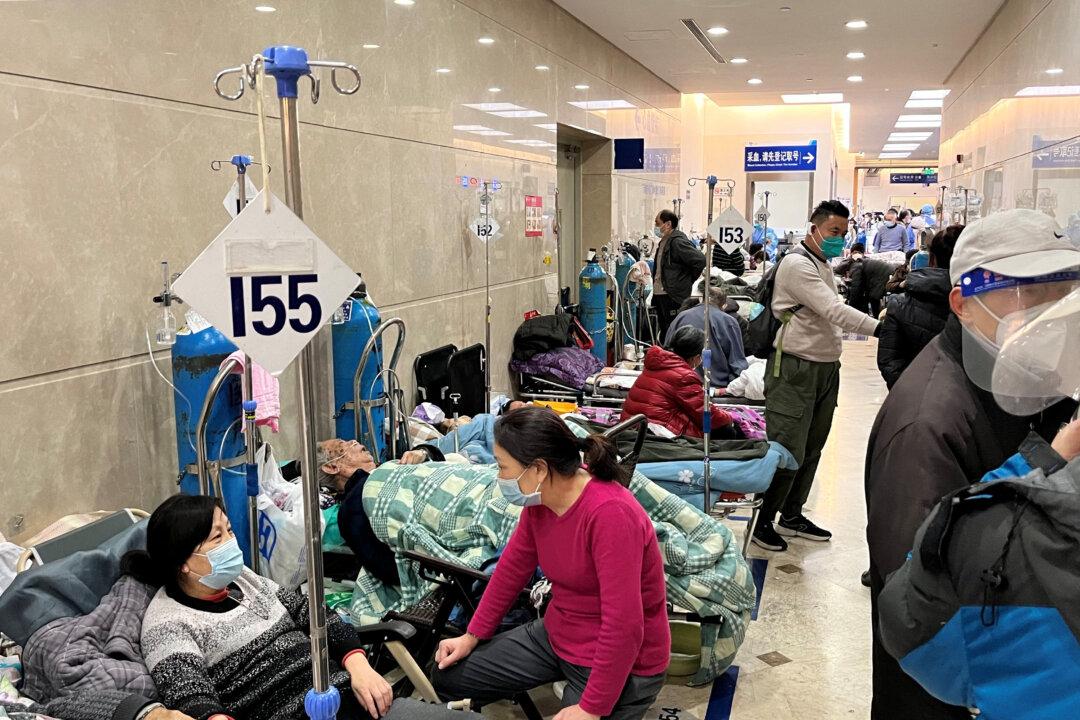Shanghai continues to be challenged with surging COVID-19 infections. Patients are too numerous to be handled, and the infected face shortages of medicine.
Many major hospitals in China have been fully occupied with severe cases, and doctors of community clinics and hospitals are overwhelmed with the number of patients. Staff at the Central Hospital of Jing'an District—one of the central districts of Shanghai—confirmed to The Epoch Times on Jan. 13 that almost all visitors to the general internal medicine department have been patients with COVID-19 infection, and the average waiting time for outpatients has been more than an hour.




